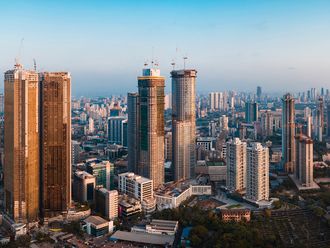
Technology is an indispensable part of the short-term rental industry, radically transforming the way property managers, guests, and investors operate.
What was once a manual, and often inefficient, system of renting out properties has evolved into a tech-driven ecosystem that delivers efficiency, personalization, and scalability. The potential to streamline operations, enhance guest experiences, and generate higher revenue becomes clear.
One of the most significant ways is by introducing automation at various levels of the business. From booking management to guest communication, automation reduces the manual workload and minimizes the potential for human error. Property management systems (PMS) and channel managers allow hosts to list their properties on multiple platforms—like Airbnb, Booking.com, and bnbmehomes.com — while managing all reservations through a single dashboard. This saves time and ensures consistency across platforms.
Guest communication, a crucial aspect of short-term rentals, is also enhanced by automation. Chatbots, automated check-in systems, and digital guest guides allow for seamless communication, reducing the need for constant manual responses. These tools ensure guests feel informed and supported throughout their stay, without overburdening property managers.
Another significant contribution is in the area of data analysis. In the short-term rental space, data is key to optimizing pricing strategies, occupancy rates, and guest satisfaction. With dynamic pricing software, property managers can adjust prices based on real-time demand, competitor pricing, and seasonal trends. This ensures that properties are competitively priced, maximizing revenue while maintaining high occupancy rates.
Additionally, technology allows for better guest profiling, enabling hosts to tailor their offerings to meet specific needs. By analyzing booking history, feedback, and preferences, property managers can personalize the guest experience, leading to higher satisfaction and better reviews, which are critical in attracting future guests.
Delivering a Wow guest experience is essential. Travelers expect convenience and a bespoke experience—and technology plays a pivotal role in meeting those expectations. Self-check-in technology, such as keyless entry and smart locks, allows guests to arrive and depart without the need for face-to-face interaction. Digital concierge services, including app-based guest guides, offer recommendations for local attractions, restaurants, and activities, enhancing the overall experience.
Managing multiple properties comes with a range of challenges, from scheduling maintenance to handling guest inquiries and turnovers. Technology has enabled property managers to operate at scale, efficiently managing all aspects of their business from a single platform.
Get all done in real-time
Maintenance management tools, for instance, allow property managers to track issues in real-time, schedule repairs, and monitor inventory. This proactive approach reduces downtime and ensures properties remain in excellent condition.
Communication tools that centralize messages from multiple channels—like email, WhatsApp, and booking platforms—ensure that property managers can stay responsive without juggling different apps.
Task management software, such as ClickUp or Trello, helps teams organize and track day-to-day tasks, ensuring no detail is overlooked, from housekeeping to guest follow-ups.
As technology becomes more integrated into the short-term rental space, security and privacy have become top priorities. With increasing concerns over data breaches and cyber threats, property managers must implement stringent cybersecurity measures. Technologies like encryption, multi-factor authentication, and secure cloud storage ensure that guest information, including personal and payment details, is protected.
Sustainability is another area where technology is making an impact in the short-term rental market. Energy-efficient appliances, smart thermostats, and automated lighting systems allow property managers to reduce energy consumption and minimize their carbon footprint.
Reduce operational costs
Not only does this appeal to eco-conscious travelers, but it also helps reduce operational costs over time. Additionally, many booking platforms now allow hosts to showcase their sustainability efforts, helping them attract environmentally aware guests.
For companies in the short-stay rentals, integrating advanced tools and systems has allowed us to scale, remain competitive, and meet the evolving demands of tech-savvy travelers. As the industry continues to grow, those who embrace technological advancements will be well-positioned to thrive in an increasingly digital world.
By adopting and adapting to the latest tech innovations, we are not only future-proofing our business but also ensuring that our guests receive the best possible experience every time they stay with us.












